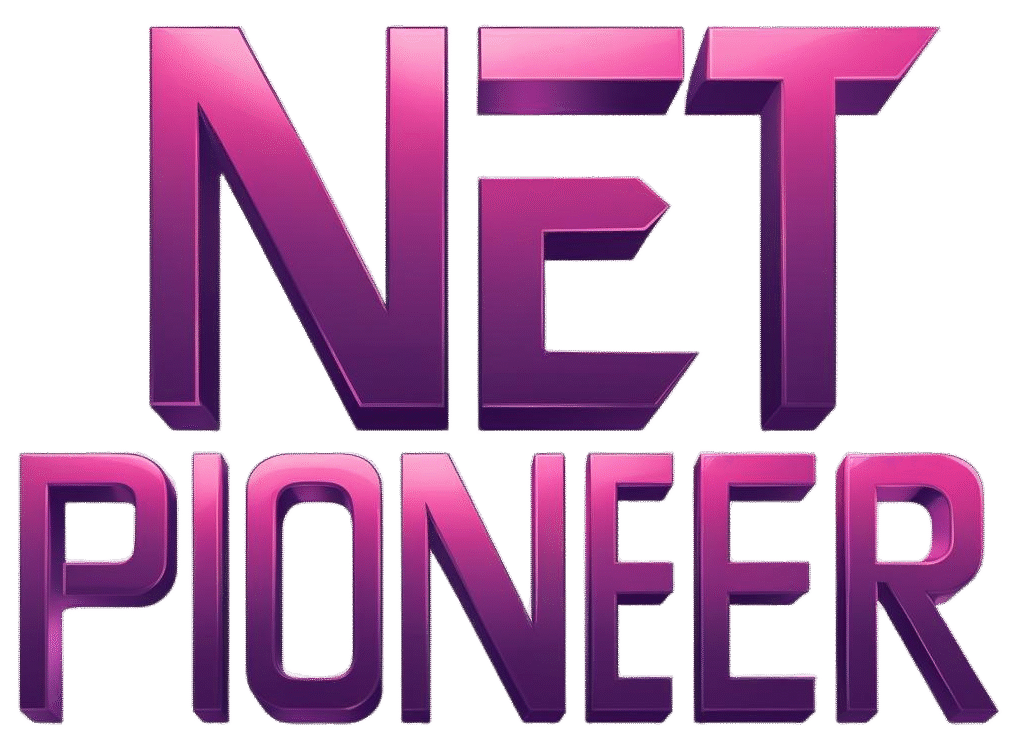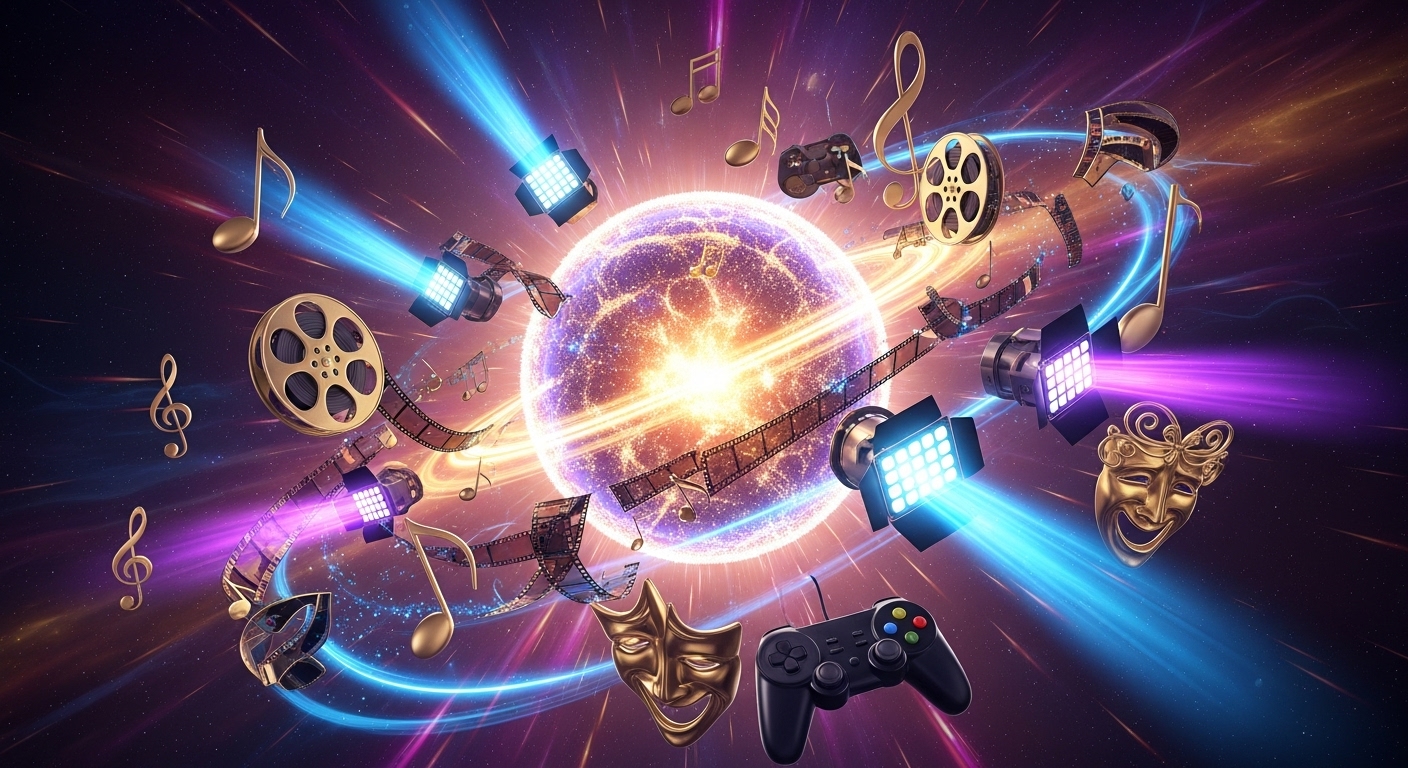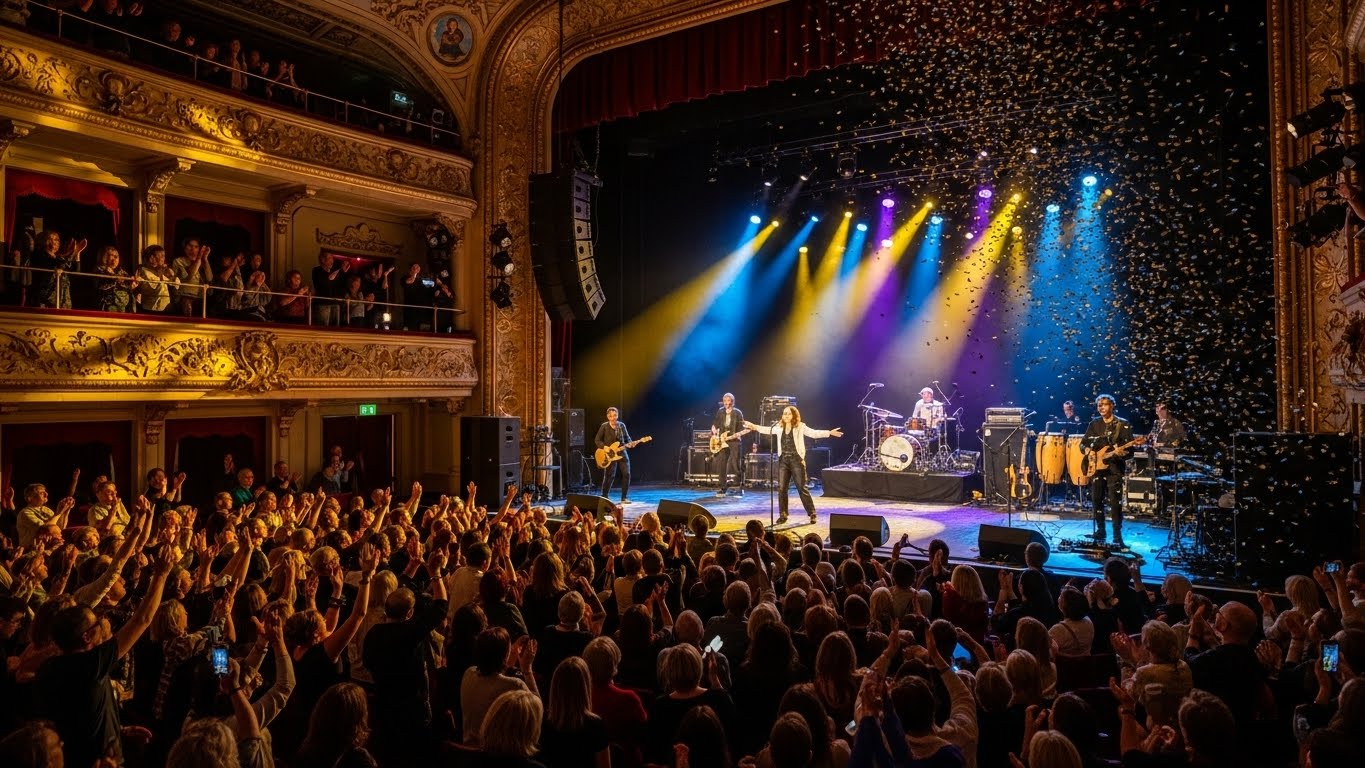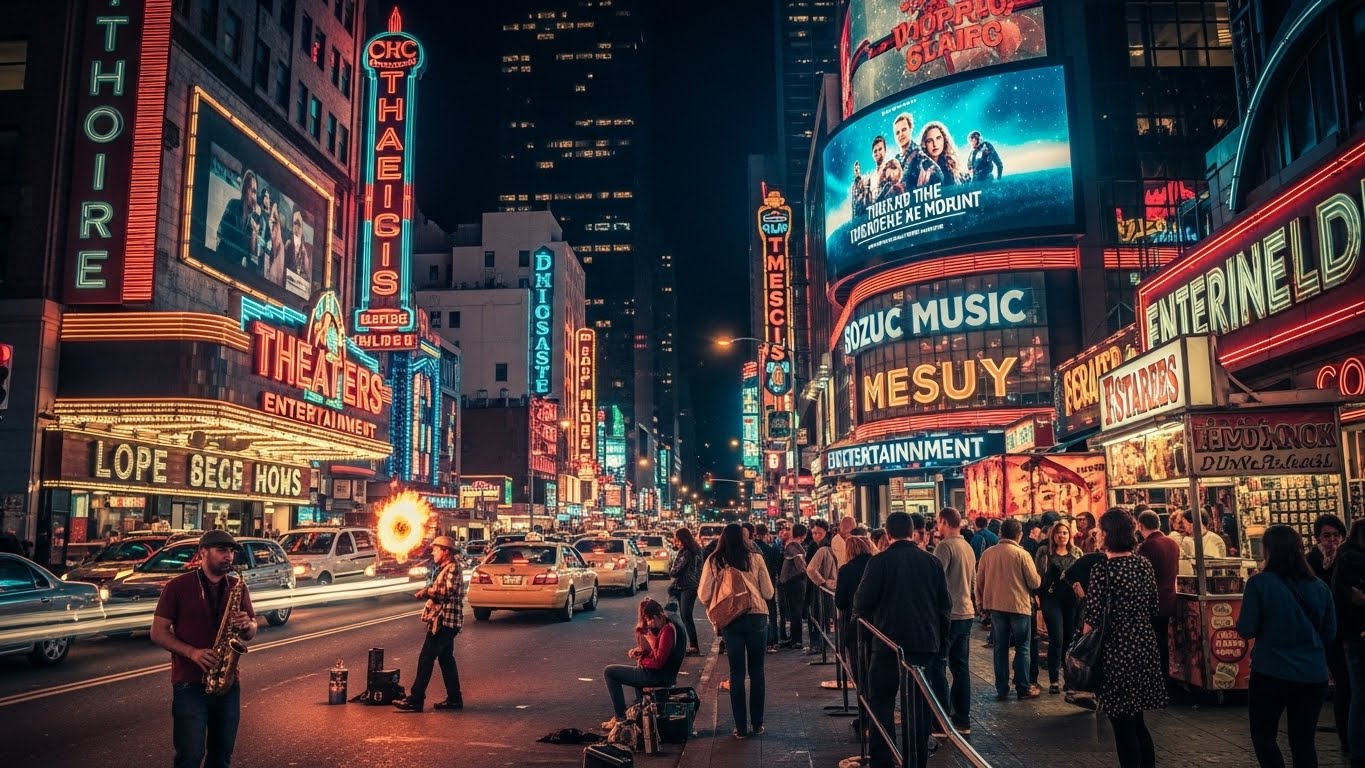Entertainment has always been an essential part of human life. From the early days of storytelling around campfires to the golden era of cinema and the current digital streaming revolution, entertainment has consistently mirrored society’s desires, fears, and aspirations. It is a reflection of culture, a form of expression, and a source of joy and relaxation. In this blog, we explore the multifaceted world of entertainment, tracing its evolution, understanding its modern manifestations, and examining how it continues to shape and reshape human experiences.
The Historical Roots of Entertainment
Entertainment is as old as humanity itself. In prehistoric times, storytelling and music played crucial roles in the survival of communities. Oral traditions, myths, and legends were not only entertaining but also educational, passing down vital knowledge about nature, survival, and social norms.
The evolution of entertainment saw major developments with the invention of theater in ancient civilizations. The Greeks introduced dramatic plays that combined narrative, music, and dance to create immersive experiences. Similarly, in ancient Rome, gladiatorial games and grand performances provided citizens with spectacles of action, drama, and excitement. These events were more than mere amusement—they were social gatherings, offering a shared sense of identity and community.
In the Middle Ages, entertainment took a different form. Jesters, traveling minstrels, and puppet shows brought humor and music to towns and villages. Courtly entertainment involved elaborate pageants, jousts, and performances that combined artistry with display of power and wealth. These forms laid the groundwork for the rich and varied entertainment industry we know today.
The Rise of Cinema: A New Era
The advent of cinema in the late 19th and early 20th centuries revolutionized entertainment. Suddenly, storytelling could be captured and replayed, reaching audiences beyond local communities. Silent films gave way to sound, and black-and-white imagery eventually evolved into vibrant Technicolor spectacles. Cinema became a powerful cultural force, influencing fashion, behavior, and public discourse.
Hollywood emerged as the global capital of film, creating stars whose influence extended far beyond the silver screen. Directors became household names, and movie franchises began to dominate cultural conversations. The cinematic experience became more than just a form of escapism—it became a platform for artistic expression, political commentary, and technological innovation.
Television and the Golden Age of Home Entertainment
The invention of television brought entertainment into the living room, fundamentally changing how people consumed content. In the mid-20th century, television shows became family rituals, shaping societal norms and sparking shared cultural moments. Sitcoms, dramas, and variety shows became staples, while news broadcasts and live events added immediacy to global happenings.
Television also democratized entertainment. Unlike cinema, which required travel to theaters, television brought stories, performances, and information directly into homes. This accessibility transformed the entertainment industry, giving rise to iconic series and celebrities who became integral parts of everyday life.
The Digital Revolution: Streaming and On-Demand Culture
The 21st century introduced an unprecedented shift in how entertainment is consumed. The rise of the internet and digital platforms transformed the industry from a broadcast model to an on-demand model. Streaming services now offer viewers the freedom to watch content anytime, anywhere, without adhering to rigid schedules.
This change has had profound effects on content creation. Series are now designed with binge-watching in mind, story arcs have become more complex, and niche audiences can be reached with specialized content. Moreover, digital platforms allow for direct interaction between creators and audiences, fostering communities around specific shows, movies, or personalities.
The explosion of social media has further blurred the line between entertainment and everyday life. Short-form videos, live streams, and user-generated content have created new forms of engagement and democratized the concept of fame. Today, anyone with creativity and a camera can become a content creator, reshaping the traditional entertainment hierarchy.
Music: The Universal Language
Music has been one of humanity’s most enduring forms of entertainment. From tribal drums to symphonies, and from vinyl records to digital streaming, music transcends time, language, and culture. It connects people emotionally, whether through shared experiences at concerts or private moments of reflection.
The modern music industry has been transformed by technology. Digital recording and distribution have made it easier for artists to produce and share music globally. Streaming platforms provide instant access to vast libraries of songs, while algorithms recommend music based on personal preferences, changing how people discover and engage with new sounds.
Live performances, however, remain a critical aspect of musical entertainment. Festivals, concerts, and tours offer immersive experiences that digital media cannot fully replicate. The energy of a live crowd, the spontaneous interactions between artists and fans, and the shared emotional journey are irreplaceable elements of musical entertainment.
Gaming: The Interactive Frontier
One of the most significant developments in entertainment over the past few decades has been the rise of video games. Gaming has evolved from simple pixelated screens to immersive, story-driven experiences rivaling cinema in narrative complexity and emotional impact.
Modern games often incorporate intricate storylines, cinematic graphics, and interactive worlds that allow players to shape their own experiences. Esports has turned competitive gaming into a spectator sport, drawing massive audiences and creating professional careers for players worldwide.
Gaming also intersects with other entertainment forms, including movies, TV shows, and music. Franchises expand across mediums, creating transmedia universes that enhance fan engagement. In essence, gaming has transformed passive consumption into active participation, giving audiences agency and a sense of personal investment in their entertainment.
Celebrity Culture and the Influence of Public Figures
Celebrities have long been a central part of entertainment. From the early days of Hollywood to modern social media influencers, public figures captivate audiences with their talent, lifestyle, and persona. Their impact extends beyond entertainment, shaping trends, opinions, and even social movements.
The rise of social media has intensified celebrity culture, providing platforms for direct interaction with fans. Audiences now have unprecedented access to the personal lives of public figures, creating a sense of intimacy and engagement. This shift has also democratized fame, allowing individuals to build followings and influence without traditional gatekeepers.
The Psychological and Social Impact of Entertainment
Entertainment is not merely a diversion; it plays a crucial role in mental health and social connection. Movies, music, games, and live events provide avenues for relaxation, stress relief, and emotional exploration. They offer safe spaces for empathy, allowing audiences to experience perspectives different from their own.
Moreover, entertainment fosters social bonds. Shared experiences, whether watching a movie with friends or discussing a favorite show online, create communities and reinforce social identity. Cultural phenomena, like blockbuster films or viral videos, become shared touchpoints, uniting people across geographic and social boundaries.
Trends Shaping the Future of Entertainment
The entertainment landscape continues to evolve rapidly. Several trends are currently shaping its future:
- Virtual and Augmented Reality: Immersive technologies are creating entirely new forms of storytelling and engagement. From VR concerts to AR-enhanced games, audiences are increasingly seeking interactive and sensory-rich experiences.
- Artificial Intelligence in Content Creation: AI is beginning to influence how stories are written, music is composed, and visual effects are generated. This technology could revolutionize content creation while raising questions about authenticity and originality.
- Globalization of Content: Entertainment is becoming more international. Non-English films, series, and music are reaching global audiences, fostering cross-cultural exchange and appreciation.
- Sustainability and Ethical Consumption: Audiences are increasingly conscious of the environmental and ethical impact of entertainment production. Studios and creators are exploring sustainable practices, from green filmmaking to eco-friendly concerts.
The Role of Nostalgia in Entertainment
Nostalgia is a powerful force in entertainment. Reboots, remakes, and revivals tap into collective memories, providing comfort and familiarity in a rapidly changing world. Nostalgic content also bridges generational gaps, allowing older audiences to revisit beloved stories while introducing new audiences to classic narratives.
While some criticize nostalgia-driven content for lacking originality, it often serves as a foundation for innovation. By blending familiar elements with fresh perspectives, creators can craft experiences that resonate emotionally while offering new insights and excitement.
Entertainment as a Reflection of Society
Entertainment does more than amuse—it mirrors societal values, struggles, and aspirations. Films, television shows, and music often address pressing social issues, from inequality and injustice to identity and belonging. Satire, comedy, and drama provide platforms for critique and reflection, allowing audiences to engage with complex topics in accessible ways.
Moreover, entertainment influences social behavior. Fashion trends, language, and even political opinions are shaped by the stories people consume. In this sense, entertainment is both a product and a driver of culture, reflecting society while actively shaping its evolution.
Conclusion: The Timeless Allure of Entertainment
Entertainment is a testament to human creativity, imagination, and connection. It has evolved from oral storytelling to immersive digital experiences, yet its core purpose remains unchanged: to inspire, engage, and bring joy. In a fast-paced world filled with challenges and uncertainties, entertainment provides a vital escape, a source of inspiration, and a means of connection.
As technology continues to advance and societal norms shift, the forms and mediums of entertainment will continue to transform. However, the human desire for stories, music, laughter, and shared experiences will remain constant. Entertainment, in all its forms, will continue to captivate, delight, and reflect the essence of what it means to be human.



